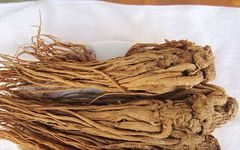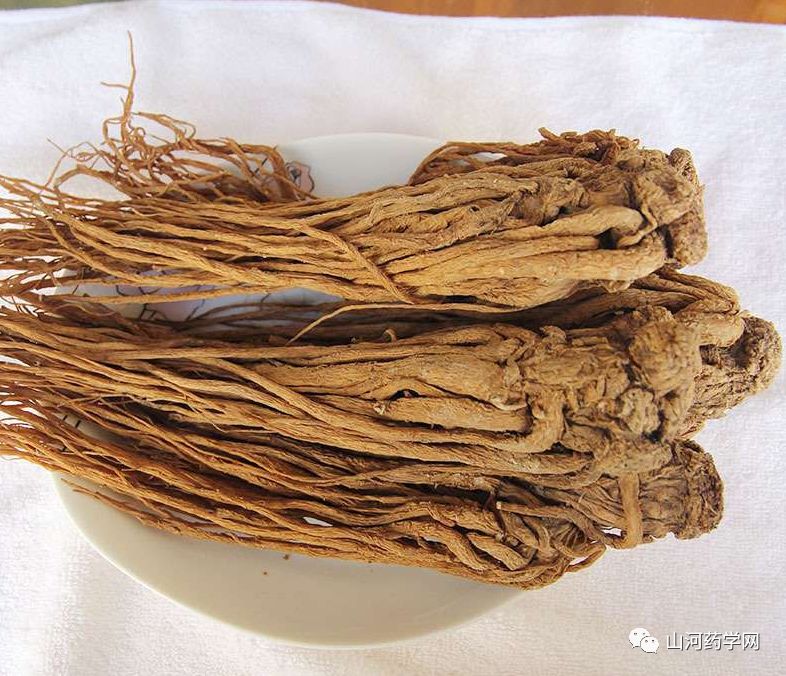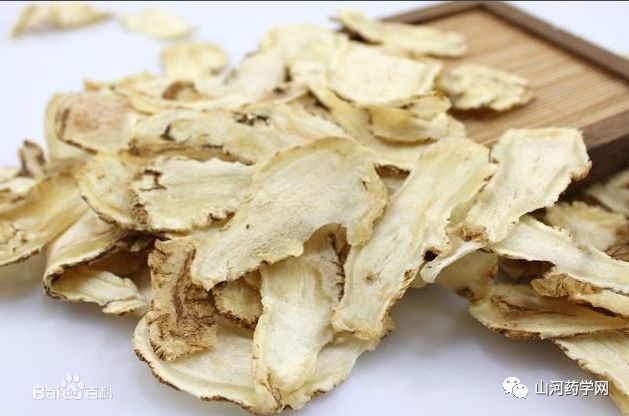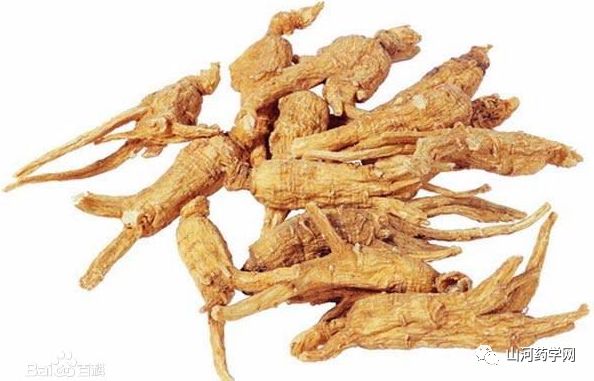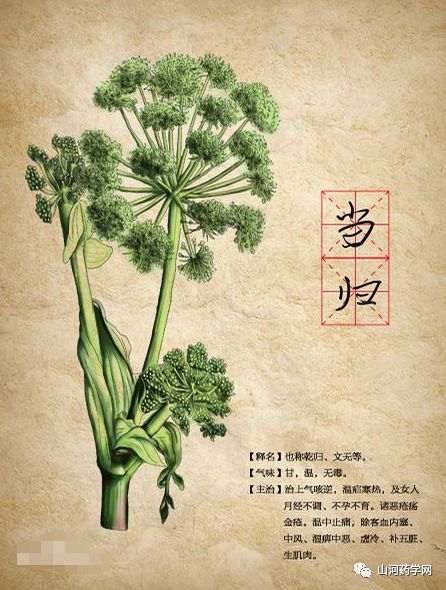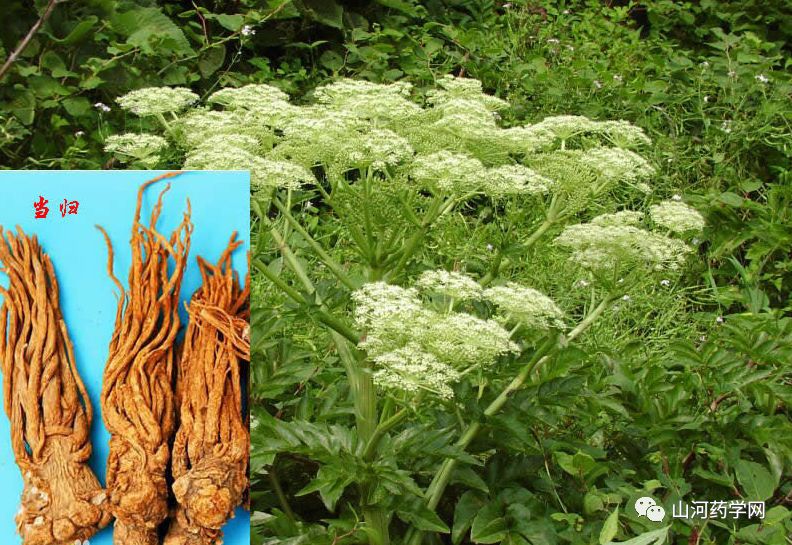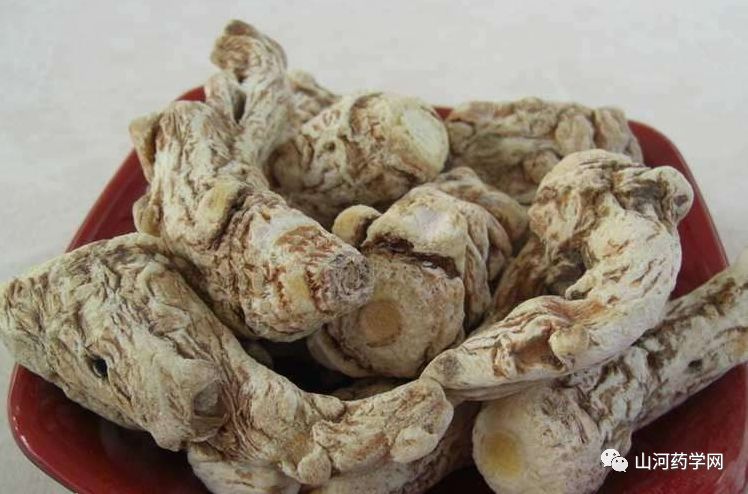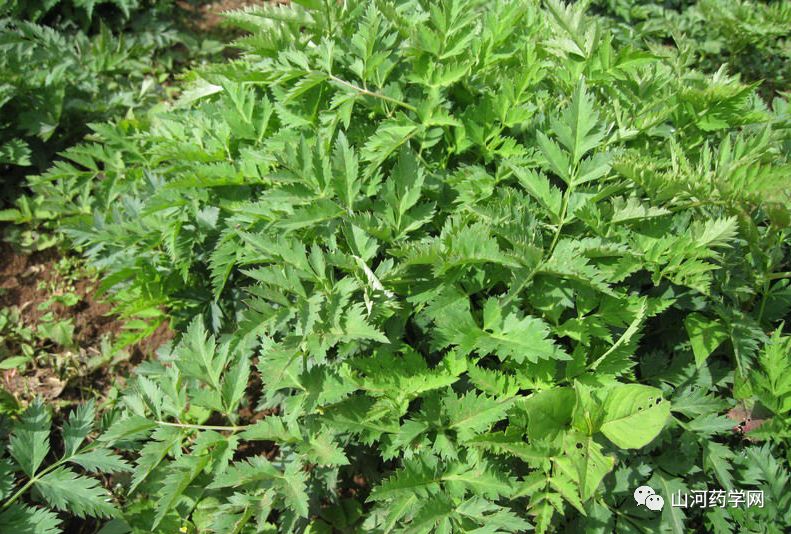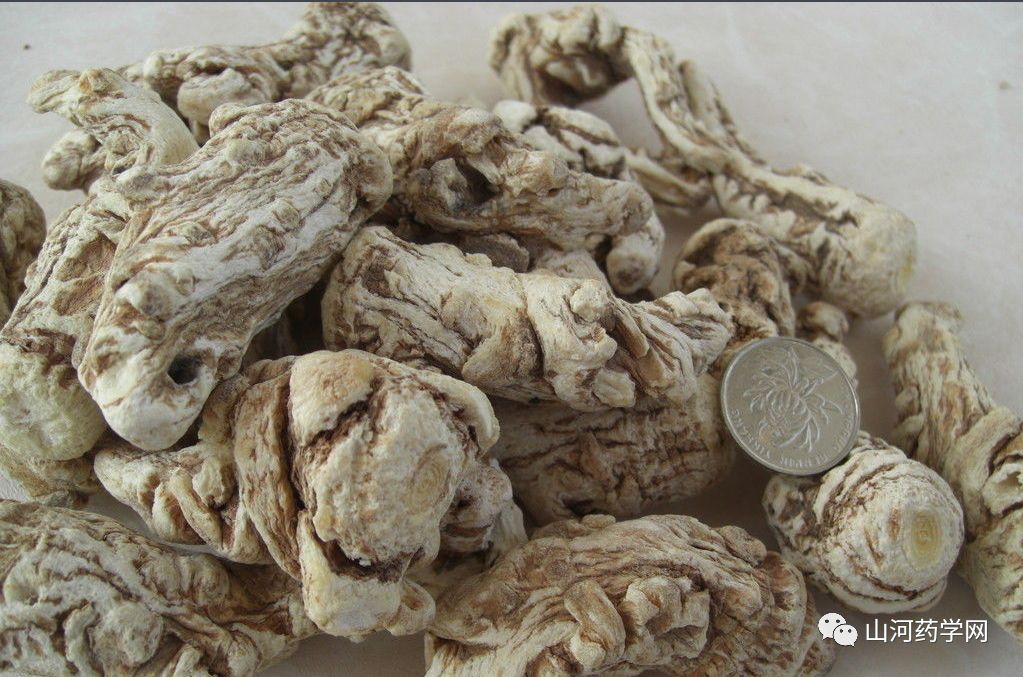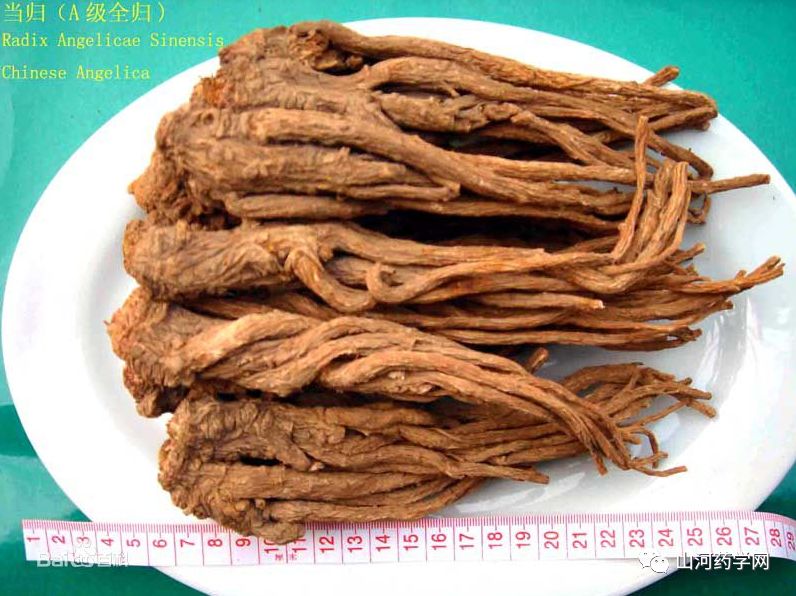| Angelica SinensisDānɡ Guī | |
|---|---|
|
|
|
| Aliases | Danggui, Huai Donggui, Qinna, Mawui Gui, Yungui, Xi Danggui, Min Danggui |
| Functions | 补血 (bu xue) and 活血 (huo xue), regulate menstruation and relieve pain, moisten dryness and promote bowel movement. Treats irregular menstruation, dysmenorrhea, abdominal pain, masses, and excessive bleeding; blood deficiency headaches, dizziness, and paralysis; dry intestines and constipation; post-dysentery heaviness; carbuncles and injuries. |
| First Recorded In | Tang Bencao |
| Toxicity | Non-toxic |
| Meridians Entered | Heart, Spleen, Liver |
| Nature | Warm |
| Taste | Pungent, Sweet |
Angelica Sinensis, a perennial herb, is distributed in Gansu, Yunnan, Sichuan, Qinghai, Shaanxi, Hunan, Hubei, and Guizhou in China, and is cultivated in various regions. The root of Angelica Sinensis is used medicinally and is one of the most commonly used Chinese herbs.
Chinese: 当归
Aliases: Qin Gui, Yun Gui, Xi Dang Gui, Min Dang Gui.
The whole Angelica Sinensis root is slightly cylindrical, with the upper part called “Gui Tou”, the main root called “Gui Shen” or “Cun Shen”, and the lateral roots called “Gui Wei” or “Gui Tui”; collectively referred to as “Quan Gui”. The whole Angelica Sinensis nourishes blood and invigorates blood circulation, while the main root nourishes blood, and the tail invigorates blood.
Angelica Sinensis from Min County in Dingxi City, Gansu Province (located southeast of Lanzhou) is known for its superior quality and is referred to as the “Hometown of Chinese Angelica”.
Dry Angelica (as seen in Shennong Bencao Jing), Mountain Firewood (as seen in Er Ya), White Firewood (as seen in Er Ya), and Wen Wu (as seen in Bencao Gangmu).
Origin of the Name Angelica Sinensis:
1. In ancient times, when a man married a woman to have children, Angelica Sinensis was a key herb for treating women’s diseases, symbolizing the longing for a husband, hence the name Angelica Sinensis, which resonates with the Tang poem “Huma is easy to plant but no one plants it, just as it is time to return but does not return”;
2. Chen Cheng stated: Angelica Sinensis treats postpartum blood stasis in pregnant women, showing significant efficacy; if there is a reversal of qi and blood, taking it can stabilize the reversal and restore the proper flow of qi and blood, hence the name Angelica Sinensis.
Indications
1. Blood deficiency with fever (thirsty and drinking a lot, red eyes and flushed face, pulse is large and weak, heavy pressure is ineffective. If treated with Bai Hu Tang for heat symptoms, it will lead to death). Use 2 qian of Angelica Sinensis (washed with wine). 1 liang of cotton yellow (honey moxibustion), decoct in water, take once on an empty stomach. Take two doses a day. This formula is called “Angelica Sinensis Blood Nourishing Decoction”.
2. Excessive blood loss (from miscarriage, postpartum, excessive bleeding during menstruation, traumatic bleeding, tooth extraction, etc., leading to restlessness, dizziness, and loss of consciousness). Use 2 liang of Angelica Sinensis, 1 liang of Chuanxiong, each 5 qian, add 7 parts water, 3 parts wine, decoct until 70% done. Take twice a day.
3. Persistent nosebleeds. Use dried Angelica Sinensis, ground finely. Take 1 qian, mix with rice soup.
4. Blood in urine. Use 4 liang of Angelica Sinensis, chopped, add 3 sheng of wine, boil down to 1 sheng, take all at once.
5. Severe headaches. Use 2 liang of Angelica Sinensis, add 1 sheng of wine, boil down to 6 parts and drink. Take twice a day.
6. Arm pain. Use 3 liang of Angelica Sinensis, finely chopped, soak in wine for three days and drink. Finish the drink, then continue with other medications until recovery.
7. Chronic dysentery. Use 2 liang of Angelica Sinensis, 1 liang of Wu Zhu Yu, stir-fry until fragrant. Remove Wu Zhu Yu, grind Angelica Sinensis into powder, mix with honey to form pills the size of a walnut. Take 30 pills with rice soup. This formula is called “Sheng Jin Wan”.
8. Constipation. Use Angelica Sinensis and Bai Zhi in equal parts. Take 2 qian with rice soup.
9. Women’s ailments. Use 4 liang of Angelica Sinensis, 2 liang of Rehmannia, grind finely, mix with honey to form pills the size of a walnut. Take 15 pills before meals with rice soup.
10. Menstrual reversal, coming out from the mouth and nose. First, grind Jing Mo and take the juice, then use Angelica Sinensis tail and safflower each 3 qian, add 1.5 cups of water, decoct until 80% done, take warm.
11. Amenorrhea in young girls. Use 1 qian each of Angelica Sinensis tail and myrrh, grind into powder. Take with red flower wine once a day.
12. Abdominal distension below the navel in women, irregular menstruation, frequent nausea, and poor sleep. Use 4 qian of Angelica Sinensis, 2 qian of burnt lacquer, grind into powder, mix with refined honey to form pills the size of a walnut. Take 15 pills with warm wine.
13. Continuous bleeding after miscarriage. Use 1 liang of Angelica Sinensis, a handful of scallion whites. Take 5 qian, add 1.5 bowls of wine, decoct until 80% done, take warm.
14. Fetal movement during pregnancy (abdominal pain, bleeding, and feeling faint). Use 2 liang of Angelica Sinensis, 1 liang of Chuanxiong, crush into coarse powder. Take 3 qian, decoct with 1 bowl of water until nearly dry, add 1 bowl of wine and boil, take warm. After half an hour, take again. No more than three to five doses, and effects can be seen. This formula is called “Shen Miao Fo Shou San”. If the fetus is still alive, it can protect the pregnancy; if the fetus is dead, it will be delivered.
15. Postpartum blood swelling (abdominal pain radiating to the side). Use 2 qian of Angelica Sinensis, 5 fen of dry ginger, grind finely. Take 3 qian, add 1 bowl of water, decoct until 80% done, add a little salt and vinegar, take hot.
16. Postpartum abdominal pain like cramping. Use 5 qian of Angelica Sinensis powder, 1 he of white honey, 1 bowl of water, decoct, divide into two doses. If ineffective, take another dose.
17. Postpartum spontaneous sweating, high fever, shortness of breath, severe pain in the waist and legs. Use 3 qian of Angelica Sinensis, 2 qian each of Astragalus and white peony (stir-fried in wine), 5 slices of ginger, add 1.5 bowls of water, decoct until 70% done, take warm.
18. Postpartum stroke (salivation, convulsions, loss of consciousness). Use equal parts of Angelica Sinensis and Schizonepeta, grind into powder. Take 3 qian, add 1.5 bowls of water, a little wine and children’s urine, decoct until 70% done and administer. If they can swallow, it can save them.
19. Cold in children, prone to crying. Use a small pinch of Angelica Sinensis powder (the size of a small bean) to administer, three to four times a day.
20. Umbilical dampness in children (either red and swollen or oozing, if not treated early, it can lead to umbilical wind). Apply Angelica Sinensis powder topically. Adding a little musk is even better. Another formula: mix Angelica Sinensis powder and talcum powder in equal parts and apply to the affected area.
21. Burns and ulcers from fire. Use 4 liang of sesame oil, fry 1 liang of Angelica Sinensis until yellow. Remove the residue, keep the oil, add 1 liang of yellow wax, stir to form a paste. After cooling, apply the paste to the affected area.
Preparation and Compatibility
1. Mainly used as an adjunct therapy added to porridge or soup.
2. Generally used raw, for enhancing blood circulation, it is stir-fried in wine. Typically, to nourish blood, the main root is used; to invigorate blood, the tail is used; to stop bleeding, the charred form is used; using wine can enhance its invigorating properties; for harmonizing blood (nourishing and invigorating), the whole Angelica Sinensis is used.
3. For blood deficiency in the heart and liver, presenting with pale complexion, dull lips and nails, dizziness, palpitations, and numbness, it can be combined with cooked Rehmannia, white peony, and Chuanxiong for stronger blood-nourishing effects.
4. For irregular menstruation due to liver qi stagnation, with irregular onset of menstruation, it can be used with Chai Hu, white peony, and Bai Zhu.
5. For elderly, weak, postpartum, and chronic illness-related blood deficiency with dry intestines and constipation, it can be combined with hemp seed, bitter orange, and raw Rehmannia.
Contraindications
1. Overdosage of Angelica Sinensis decoction or powder may occasionally cause fatigue, drowsiness, etc., which will disappear after stopping the medication. Injection of Angelica Sinensis essential oil at acupoints may cause fever, headache, dry mouth, nausea, etc., which can resolve on their own. Large doses can lower blood pressure in experimental animals, and further increases can lead to sudden drops in blood pressure and respiratory arrest. Ether extracts of Angelica Sinensis are highly toxic, and even small amounts can cause death in experimental animals. Clinical use of Angelica Sinensis should not exceed recommended doses, and patients should be monitored for adverse reactions after taking the medication.
2. Allergic reactions have been reported with compounded Angelica Sinensis injections causing anaphylactic shock.
3. Improper use: Angelica Sinensis is pungent and dispersive, not suitable for those with excessive menstruation, bleeding tendencies, yin deficiency with internal heat, or loose stools. Improper use may exacerbate bleeding and diarrhea.
4. Patients with excessive heat bleeding should avoid it, and those with dampness and fullness and loose stools should use it cautiously.
Historical literature on contraindications:
1. Bencao Jing Jizhu: Avoid southern reed. Avoid calamus, seaweed, and Mume.
2. Yao Xing Lun: Avoid hot faces.
3. Bencao Meng Quan: Angelica Sinensis is very slippery, those with diarrhea should avoid it.
4. Leigong Paozhi Yao Xing Jie: For those with initial wind evil and qi stagnation, it should be used sparingly.
5. Bencao Jing Shu: Those with weak intestines and stomach, diarrhea, and all spleen and stomach diseases should avoid it, and it should not be used during pregnancy.
6. Bencao Zheng: For those with excessive yin fire, Angelica Sinensis can move blood, which is not advisable.
7. Bencao Hui Yan: For those with lingering wind-cold, avoid using it if there are external symptoms.
8. Yao Long Xiao Pin: Not suitable for phlegm, evil heat, and fire cough symptoms.
Dietary Therapy
The root of the umbelliferous herb Angelica Sinensis. Produced in Gansu, Shaanxi, Sichuan, and other provinces. Harvested in late autumn, removing fibrous roots and dirt, and dried over fire. Can be used raw or stir-fried in wine.
[Properties] Sweet, pungent, warm in nature. Can nourish blood, invigorate blood, regulate menstruation, relieve pain, and moisten the intestines.
Contains volatile oils, with main components including ligustilide, butylenes, lactones, and angelica ketone; also contains ferulic acid, niacin, sucrose, polysaccharides, various amino acids, vitamins B12, E, and trace elements such as manganese, zinc, copper, and nickel.
[Uses] For blood deficiency, pale complexion, dizziness, and palpitations; blood deficiency or with stasis for irregular menstruation, amenorrhea, dysmenorrhea; cold abdominal pain, coronary heart disease angina, rheumatic pain, traumatic injuries; dry intestines and constipation; chronic cough and asthma.
[Dosage] 10-15g per day. Decoction, wine infusion, concentrated decoction, or added to dishes.
[Note] When using this product to invigorate blood, it is advisable to stir-fry in wine.
[Additional Formulas]
1. Angelica Sinensis Braised Lamb: 15g each of Angelica Sinensis and dried Rehmannia, 10g of dried ginger, 250g of lamb. Clean and cut the lamb into pieces, stir-fry in oil until white, add Chinese herbs, water, salt, wine, etc., and simmer until the lamb is tender. Drink the soup and eat the meat.
Originating from Qian Jin Yao Fang. This formula uses lamb, Angelica Sinensis, and Rehmannia to nourish and benefit blood, with dried ginger warming the middle and strengthening the stomach. Used for blood deficiency and weakness, or cold abdominal pain.
2. Angelica Sinensis Lamb Soup: 15g each of Angelica Sinensis and Codonopsis, 30g of Astragalus, 10g of ginger, 500g of lamb. Cut the lamb into slices, wrap each herb in gauze, and boil together until the meat is tender. Drink the soup and eat the meat.
Originating from Jisheng Fang. This formula uses ginseng and Astragalus to tonify qi, lamb to nourish blood, Angelica Sinensis to invigorate blood and relieve pain, and ginger to warm the middle and strengthen the stomach. Used for postpartum qi and blood deficiency, fever, spontaneous sweating, and body aches.
3. Angelica Sinensis Blood Nourishing Decoction: 10g of Angelica Sinensis, 60g of Astragalus. Decoct in water to drink. The dosage can also be increased to make a concentrated decoction for consumption.
Originating from Nei Wai Shang Bian Huo Lun. This formula emphasizes the use of Astragalus, followed by Angelica Sinensis, aimed at tonifying qi and benefiting blood. Used for qi and blood deficiency after blood loss, or qi deficiency and blood loss, fatigue, and dizziness.
4. Angelica Sinensis Cinnamon Wine: 30g of Angelica Sinensis, 50g of cooked Rehmannia, 15g of safflower, 6g of cinnamon, 1000g of sweet wine. Soak the herbs in sweet wine for 1-2 weeks to complete.
This formula uses Angelica Sinensis to nourish blood, invigorate blood, regulate menstruation, and relieve pain; cooked Rehmannia nourishes yin blood; safflower and cinnamon invigorate blood and promote menstruation; sweet wine facilitates blood circulation. Used for blood deficiency or with stasis for amenorrhea and irregular menstruation.
5. Angelica Sinensis Astragalus Honey Paste: 30g each of Angelica Sinensis and Astragalus, 10g of dried tangerine peel, 100g of hemp seed, appropriate amount of honey. Crush the hemp seeds, combine with the three herbs, add water to decoct for juice, then boil down to thick, mix in equal amounts of honey, stir well, and dissolve. Take 1-2 spoonfuls each time.
This formula uses Astragalus to tonify qi, Angelica Sinensis, honey, and hemp seed to moisten the intestines, and dried tangerine peel to regulate qi. Used for elderly with qi deficiency and dry intestines, constipation, and spontaneous sweating.
Facial Masks
Can be mixed with various facial mask powders for anti-wrinkle, revitalizing, and moisturizing effects.
1. Anti-Wrinkle Mask
Ingredients: Bai Zhi, Fu Ling, Angelica Sinensis, Bai Ji, Almond, Purple River Car, Honey.
1. Grind Bai Zhi, Fu Ling, Angelica Sinensis, Bai Ji, Almond, and Purple River Car into equal parts powder, then mix them all together.
2. Add an appropriate amount of water to these herbal powders to form a paste, then mix in a little honey until well combined.
3. After cleansing the face, apply the mask and leave it on for 20 minutes before rinsing off.
Tip: If your skin is oily, you can use water instead of honey to avoid an overly greasy appearance.
2. Angelica Sinensis Moisturizing Mask
Effect: Nourishes blood, revitalizes skin, moisturizes.
Ingredients: 9g of Angelica Sinensis, 9g of Bai Zhi, 3g of licorice, 1 egg yolk, 10ml of distilled water.
1. Grind the herbal materials into fine powder.
2. Crack an egg into a bowl, discard the egg white, and use only the yolk.
3. Mix the ground herbal powder with the egg yolk until well combined, adjusting the consistency with distilled water.
4. Evenly apply to the face, avoiding the hairline and eyebrows. Leave on for 20-30 minutes, then rinse with clean water. Angelica Sinensis Whitening Mask: 30g of Angelica Sinensis, 30g of Chuanxiong, 130g of Bai Zhi, 30g of Yimucao, 15g of Wu Mei. Store the Angelica Sinensis powder in a bottle for later use. Apply once every night for 15-20 days, using moisturizing and nourishing skincare products.
5. Additionally, Angelica Sinensis also has a role in treating hair loss.
The method is: 50g of Angelica Sinensis, add an appropriate amount of water, decoct twice, filter to obtain 1000ml, using enamel, ceramic, or glass containers, avoiding iron and aluminum. Apply the decoction to the scalp after washing hair and massage.
Dietary Therapy
The root of the umbelliferous herb Angelica Sinensis. Produced in Gansu, Shaanxi, Sichuan, and other provinces. Harvested in late autumn, removing fibrous roots and dirt, and dried over fire. Can be used raw or stir-fried in wine.
[Properties] Sweet, pungent, warm in nature. Can nourish blood, invigorate blood, regulate menstruation, relieve pain, and moisten the intestines.
Contains volatile oils, with main components including ligustilide, butylenes, lactones, and angelica ketone; also contains ferulic acid, niacin, sucrose, polysaccharides, various amino acids, vitamins B12, E, and trace elements such as manganese, zinc, copper, and nickel.
[Uses] For blood deficiency, pale complexion, dizziness, and palpitations; blood deficiency or with stasis for irregular menstruation, amenorrhea, dysmenorrhea; cold abdominal pain, coronary heart disease angina, rheumatic pain, traumatic injuries; dry intestines and constipation; chronic cough and asthma.
[Dosage] 10-15g per day. Decoction, wine infusion, concentrated decoction, or added to dishes.
[Note] When using this product to invigorate blood, it is advisable to stir-fry in wine.
[Additional Formulas]
1. Angelica Sinensis Braised Lamb: 15g each of Angelica Sinensis and dried Rehmannia, 10g of dried ginger, 250g of lamb. Clean and cut the lamb into pieces, stir-fry in oil until white, add Chinese herbs, water, salt, wine, etc., and simmer until the lamb is tender. Drink the soup and eat the meat.
Originating from Qian Jin Yao Fang. This formula uses lamb, Angelica Sinensis, and Rehmannia to nourish and benefit blood, with dried ginger warming the middle and strengthening the stomach. Used for blood deficiency and weakness, or cold abdominal pain.
2. Angelica Sinensis Lamb Soup: 15g each of Angelica Sinensis and Codonopsis, 30g of Astragalus, 10g of ginger, 500g of lamb. Cut the lamb into slices, wrap each herb in gauze, and boil together until the meat is tender. Drink the soup and eat the meat.
Originating from Jisheng Fang. This formula uses ginseng and Astragalus to tonify qi, lamb to nourish blood, Angelica Sinensis to invigorate blood and relieve pain, and ginger to warm the middle and strengthen the stomach. Used for postpartum qi and blood deficiency, fever, spontaneous sweating, and body aches.
3. Angelica Sinensis Blood Nourishing Decoction: 10g of Angelica Sinensis, 60g of Astragalus. Decoct in water to drink. The dosage can also be increased to make a concentrated decoction for consumption.
Originating from Nei Wai Shang Bian Huo Lun. This formula emphasizes the use of Astragalus, followed by Angelica Sinensis, aimed at tonifying qi and benefiting blood. Used for qi and blood deficiency after blood loss, or qi deficiency and blood loss, fatigue, and dizziness.
4. Angelica Sinensis Cinnamon Wine: 30g of Angelica Sinensis, 50g of cooked Rehmannia, 15g of safflower, 6g of cinnamon, 1000g of sweet wine. Soak the herbs in sweet wine for 1-2 weeks to complete.
This formula uses Angelica Sinensis to nourish blood, invigorate blood, regulate menstruation, and relieve pain; cooked Rehmannia nourishes yin blood; safflower and cinnamon invigorate blood and promote menstruation; sweet wine facilitates blood circulation. Used for blood deficiency or with stasis for amenorrhea and irregular menstruation.
5. Angelica Sinensis Astragalus Honey Paste: 30g each of Angelica Sinensis and Astragalus, 10g of dried tangerine peel, 100g of hemp seed, appropriate amount of honey. Crush the hemp seeds, combine with the three herbs, add water to decoct for juice, then boil down to thick, mix in equal amounts of honey, stir well, and dissolve. Take 1-2 spoonfuls each time.
This formula uses Astragalus to tonify qi, Angelica Sinensis, honey, and hemp seed to moisten the intestines, and dried tangerine peel to regulate qi. Used for elderly with qi deficiency and dry intestines, constipation, and spontaneous sweating.
Facial Masks
Can be mixed with various facial mask powders for anti-wrinkle, revitalizing, and moisturizing effects.
1. Anti-Wrinkle Mask
Ingredients: Bai Zhi, Fu Ling, Angelica Sinensis, Bai Ji, Almond, Purple River Car, Honey.
1. Grind Bai Zhi, Fu Ling, Angelica Sinensis, Bai Ji, Almond, and Purple River Car into equal parts powder, then mix them all together.
2. Add an appropriate amount of water to these herbal powders to form a paste, then mix in a little honey until well combined.
3. After cleansing the face, apply the mask and leave it on for 20 minutes before rinsing off.
Tip: If your skin is oily, you can use water instead of honey to avoid an overly greasy appearance.
2. Angelica Sinensis Moisturizing Mask
Effect: Nourishes blood, revitalizes skin, moisturizes.
Ingredients: 9g of Angelica Sinensis, 9g of Bai Zhi, 3g of licorice, 1 egg yolk, 10ml of distilled water.
1. Grind the herbal materials into fine powder.
2. Crack an egg into a bowl, discard the egg white, and use only the yolk.
3. Mix the ground herbal powder with the egg yolk until well combined, adjusting the consistency with distilled water.
4. Evenly apply to the face, avoiding the hairline and eyebrows. Leave on for 20-30 minutes, then rinse with clean water. Angelica Sinensis Whitening Mask: 30g of Angelica Sinensis, 30g of Chuanxiong, 130g of Bai Zhi, 30g of Yimucao, 15g of Wu Mei. Store the Angelica Sinensis powder in a bottle for later use. Apply once every night for 15-20 days, using moisturizing and nourishing skincare products.
5. Additionally, Angelica Sinensis also has a role in treating hair loss.
The method is: 50g of Angelica Sinensis, add an appropriate amount of water, decoct twice, filter to obtain 1000ml, using enamel, ceramic, or glass containers, avoiding iron and aluminum. Apply the decoction to the scalp after washing hair and massage.
Disclaimer:The content on this site is added and organized by users for learning and reference purposes only. The information on the site may not be accurate, comprehensive, or up-to-date, and the content should not be considered the final basis for diagnosing or treating diseases.Shanhe TCM Networkwould like to remind users that if you experience any discomfort, please seek medical attention promptly. Thank you for your support and love; we will strive to do better~!!!


